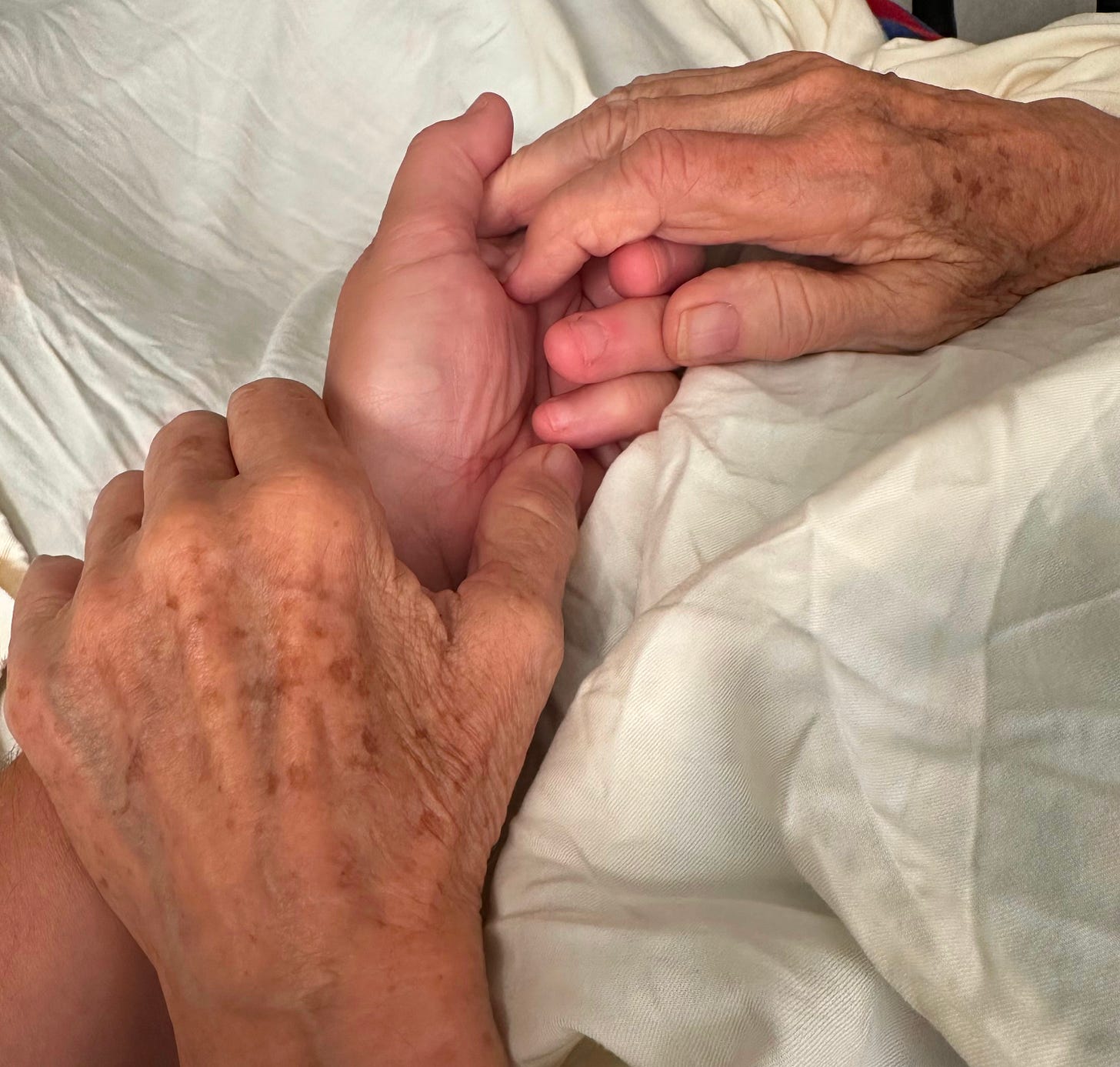How I want to grieve
...with you by my side
Wow. Thank you to all the new subscribers during the last month. I am overwhelmed by your kindnesses, your willingness to read what I write, and your openness to sharing your own grief journeys.
For those who are new, I want to provide a little bit of context and insight into who I am and what I do. I am beyond grateful for how my life has unfolded and how it continues to unfold, and yet…there are many ways in which I’d give it all back to have certain persons in my life again.
The only thing for certain that I understand is that time moves astonishingly fast, and that my appetite for more time grows as I move closer toward death. We are all dying, and before I go, I want to understand so many more things about living and how we can live in such a way as to welcome death when it appears.
So I think a lot about death and dying, about joy and sorrow, about grief, about my journey which has led me to each of you reading this now.
I have been grieving ever since I can remember. I was born in April 1967 and four months later my father was diagnosed with what would turn out to be a terminal cancer. He was a smoker—picked up from his time in the Navy—and continued on through his life after that. However, I didn’t know smoking killed him until…well into my 40s. (A story for another time!) For the first five years of my life he battled cancer until cancer won. I have no memory of my father. No memory of his presence. Only the memory of his absence. But I have smells and senses and moments of emotional clarity during that time. His death and our family grief was hidden from conversation, won out by the belief in the early 70s that talking to children about grief would be, well, detrimental to all of us. As you likely already know, what we have since learned is that NOT talking about grief is actually the thing that harms more.
So I grew up and my grief appeared in many other ways: in the dark, through meltdowns and screaming, through isolation and loneliness, through running away, up my nose, down my throat, through consuming vasts amounts of food and purging, through hunger strikes, and in all kinds of unhealthy and non-healing ways.
Then I got married and had two children and started to heal a little bit. My children provided me with a balm I thought would *fix* my grief.
Then grief happened again in the form of my dead daughter, Grace, and I plunged into a dark night of the soul which has led me to where I am today.
In 2024, in a four month period I have lost my mother, my mother-in-law, my uterus, my dog, the home my mother lived in for 51 years and where I moved to when I was six years old and fatherless. I spent the first seven months of this year caring for my mom during her battle with pancreatic cancer. I fell and sprained an ankle so badly it will take months to heal.
I am a grieving mother, a grieving daughter, a grieving granddaughter, a grieving friend.
I am learning how to love by learning how to grieve. I want to grieve harder and love harder. I don’t apologize for my grief, nor do I seek sympathy for it. I will spend the rest of my life learning how to do this well.
Grief will always take center stage. Grace is my teacher along the way. Everything I am today is because Grace has taught me how to love again. Every grief now is informed by my grief as a mother. Even my father’s death—31 years before Grace—has been transformed by Grace.
I want to continue to be transformed, to be moved to tears, to be moved.
So here is my voice.
Here are my words.
Thank you for coming along with me.



I recommend Mary Oliver’s poem “When Death Comes” and a subscription to “A Hundred Falling Veils”.
May you enjoy many unexpected blessings.
Sarah, my heartfelt condolences in your many losses.